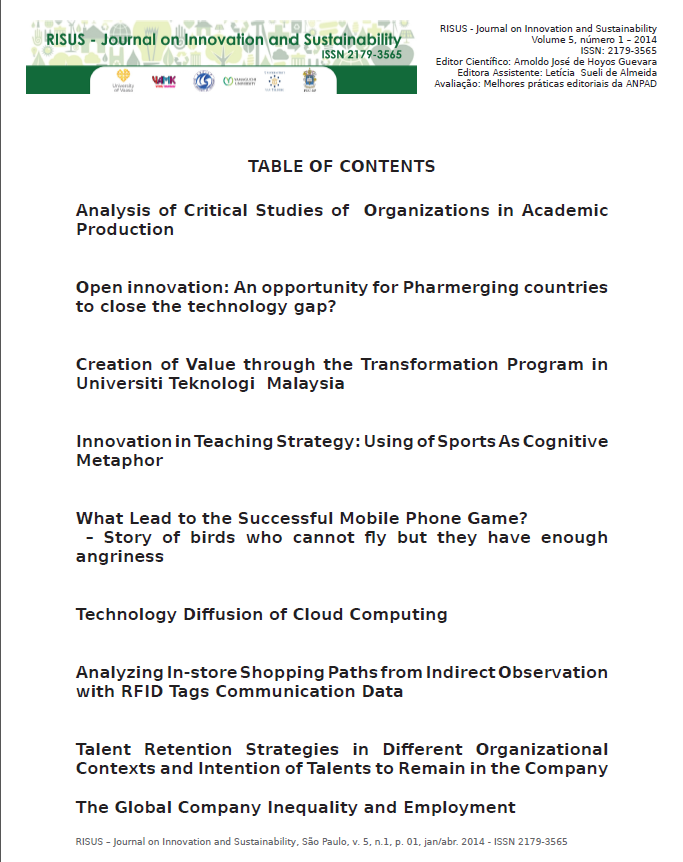Talent Retention Strategies in Different Organizational Contexts and Intention of Talents to Remain in the Company
DOI:
https://doi.org/10.24212/2179-3565.2014v5i1p49-61Palavras-chave:
retention, strategy, talentResumo
This article presents a case study of two companies operating in the Brazilian market;one in the electrical energy sector, and the other in the pharmaceutical sector, both of whichappeared on the list of 150 Best Companies to Work for in Brazil in 2012, and have stated thatthey consider retaining talents to be essential to their Human Resources strategies. Thesecompanies identified the professionals they considered to be talents, through the applicationof a questionnaire to the employees, with 51 statements, the results of which were used toanalyze the link between retention factors and intention to remain in the company. Togetherwith the application of the multiple regression technique for associations between the variables,the retention factors, measured by means of the employees’ perceptions, were qualitativelylinked to the practices of talent retention adopted by the companies. Among the results, it ishighlighted that the retention factors explained 86% in company A, and 83% in company B, ofthe variation in the variable “intention to remain in the company.” It was observed that thetalents are determined by the management model of each company, and that the employeeswho were considered talents based on their current performance, together with those withpotential to be considered talents in the future, represent 20% of the company’s staff. Basedon the results, we believe that before implementing a talent retention strategy, companiesneed to understand the influence of the macroeconomic scenario on the job market; the socialinfluences that impact on employees’ career expectations; and the individual personalities ofthe talents.Downloads
Publicado
Edição
Seção
Licença
Esta obra está licenciada sob uma licença Creative Commons Atribuição - No comercial - Sin derivaciones 4.0 Internacional
1.O(s) autor(es) autoriza(m) a publicação do artigo na revista;
2.O(s) autor(es) garante(m) que a contribuição é original e inédita e que não está em processo de avaliação em outra(s) revista(s);
3.A revista não se responsabiliza pelas opiniões, ideias e conceitos emitidos nos textos, por serem de inteira responsabilidade de seu(s) autor(es);
4.É reservado aos editores o direito de proceder ajustes textuais e de adequação do artigos às normas da publicação.
1.1 Copyright Statement
This journal is licensed under a Creative Commons Attribution-Non Commercial-No Derivers 4.0 International license.
1. The author (s) authorize the publication of the article in the journal;
2. The author (s) warrant that the contribution is original and unpublished and is not in the process of being evaluated in other journal (s);
3. The journal is not responsible for the opinions, ideas and concepts emitted in the texts, as they are the sole responsibility of its author (s);
4. The editors are entitled to make textual adjustments and to adapt the articles to the standards of publication.


